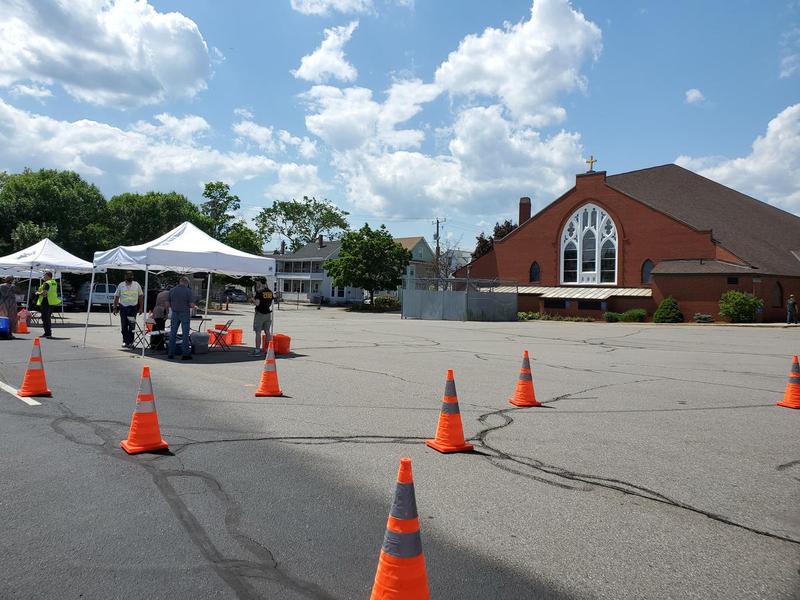COVID Tests In A Church Parking Lot? For Nashua, It’s Key To Public Health Outreach

The testing site at St. Aloysius in Nashua includes a drive-in for appointments and a walk-in option. (Daniela Allee/NHPR)
Since early May, health worker Lisa Vasquez has spent most of her Thursday afternoons in the parking lot of St. Aloysius of Gonzaga Church in Nashua — which, at 3 p.m. on those days, transforms into a COVID-19 testing site.
Like other public testing sites for coronavirus in Nashua and elsewhere, this one has Vasquez and other public health colleagues donning gloves, gowns and face shields as they prepare to greet potential patients.
Unlike some other testing sites, this one isn’t designed to be drive-through only — it also offers a walk-up option, for people without cars. And Vasquez says that, too, is by design: About one in four people in this neighborhood don’t own a car, according to Census data.
“When you drive around this community, you might see many people walking because it’s a walkable community,” she says. “People can walk to the downtown area, to the library. Right behind us, there’s a walking trail.”
But accessibility for people who don’t own a vehicle wasn’t the only thing on the mind of Nashua’s public health team when they scouted out this location. About 20 percent of people in the surrounding neighborhood are foreign-born, and about 40 percent are Latino, according to the Census.
“Nashua is culturally diverse in general, but in this area you see a lot of people that would maybe describe themselves as Latino, immigrants from Africa, Asia,” Vasquez says. “I can’t think of any place that might not be represented.”
The city’s public testing site at St. Aloysius is part of an effort to try to cater its COVID-19 response to the specific needs of its community — which has been a learning process from the beginning.
About a month into the pandemic, in late April, the city set up its first public testing site at Nashua North High School. But that site wasn’t reaching the Latino population, which was a priority for the city. One problem: The Nashua North testing site was only accessible to people with cars, which left out a large part of the community the city was trying to reach.
Read the rest of this story at NHPR’s website.
